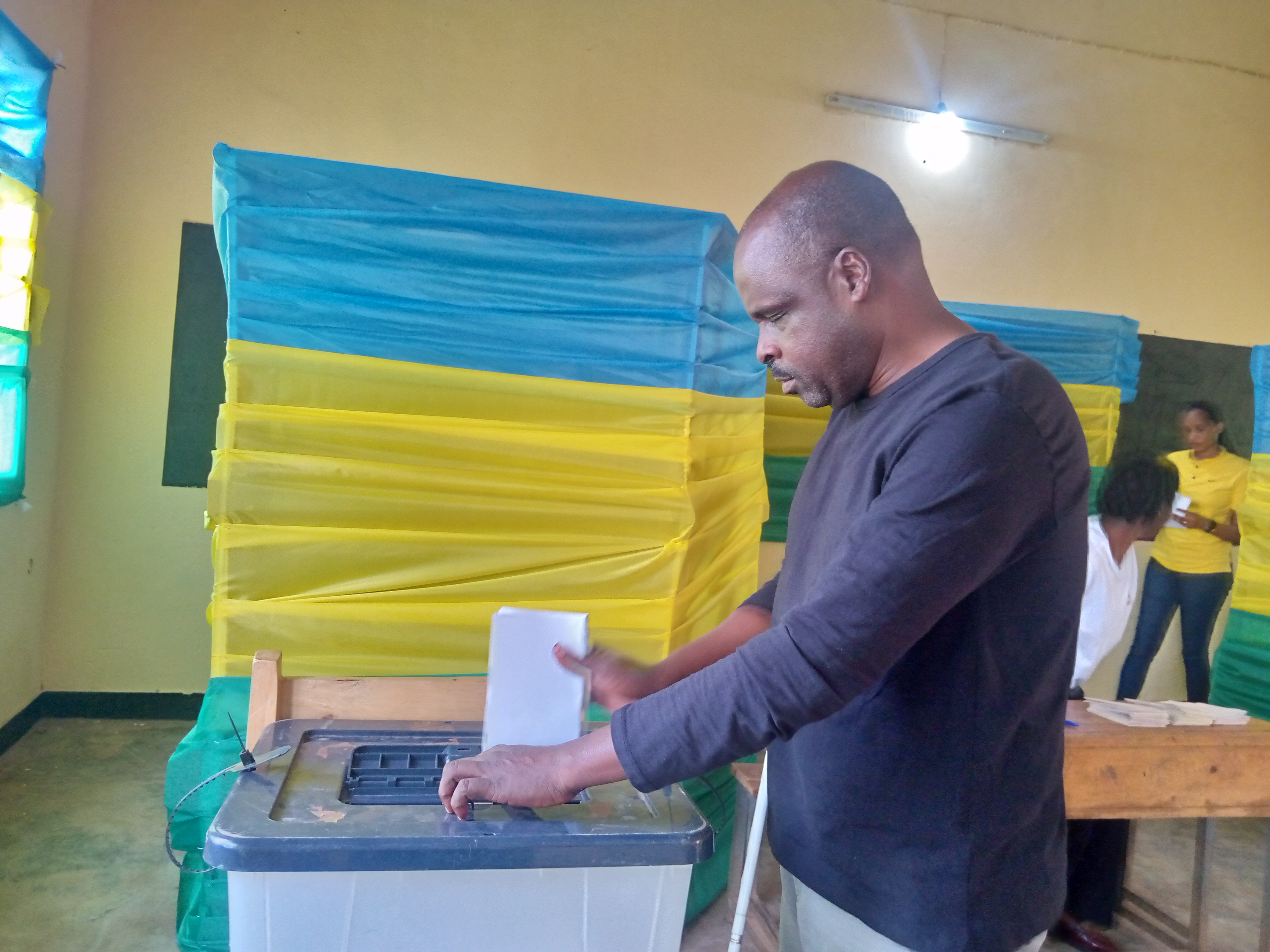
News
Advancing Democracy
Play audio version
Historic Voting Accessibility for Rwandans with Disabilities
July 18, 2023
This is the fourth article in our series on accessible elections across the globe.
KIGALI, Rwanda – Rwanda has been making strides in ensuring its elections are accessible to all its citizens, including those with disabilities. In its general elections on July 15, Rwandans with disabilities noted significant improvements to accommodations, marking a notable shift toward greater inclusion and equality in the democratic process.
Voting is a cornerstone of democracy, allowing citizens to exercise their civic duty and influence their country’s governance. For Rwandans with disabilities, the recent presidential and parliamentary elections were a step forward in their quest for equal rights and participation.
“Voting can be a powerful and emotional experience for anyone, but for a person with a disability in Rwanda, the emotions can be particularly profound due to our background related to voting,” says Jean Marie Vianney Mukeshimana, who is blind.
With great emotion, Mukeshimana mentions how, in all his years voting, he has never experienced such accessible elections as those on July 15. For the first time, Mukeshimana used a Braille voting slate, which allowed him to vote privately and independently. In previous years, he’d relied on a child to vote for him. “You cannot imagine how happy I am, for I have voted by myself and privately as others do accessibly,” he says. “Voting is a deeply emotional and meaningful experience for a person with any disability in Rwanda, reflecting a blend of pride, empowerment, and hope.”
Chemsa Iradukunda shares how happy she was to have a voice as a person with a psychosocial disability in the decision-making process that affects her community and country. “Rwandan law related to voting used to exclude us [persons with psychosocial disabilities] from voting, saying that we may cause troubles to the voting sites. But today, I am so happy, for I voted who I want to lead our country and hope will help in the well-being of persons with disabilities. I’m really thankful for the advocacy done to make this election more accessible to persons with disability, particularly with psychosocial. From the time I reached the polling place, they immediately helped me to enter, without any [worry] that I may cause troubles.”
However, not all experiences on July 15 were positive. Jean Damascene Bizimana, a Deaf voter, highlights the ongoing challenges for the Deaf community due to the lack of sign language interpreters at polling sites. “We still encounter a number of challenges while voting as persons who are Deaf. Reaching the polling place, others are welcomed and being explained everything [they are] going to do, but our only issue is that we need a sign language interpreter to understand what they are saying, where to go, and how everyone is going to vote. You can stay at the polling place from morning until the time they finish voting due to poor communication at the polling place. I think we are forgotten that we will vote as other citizens do.”
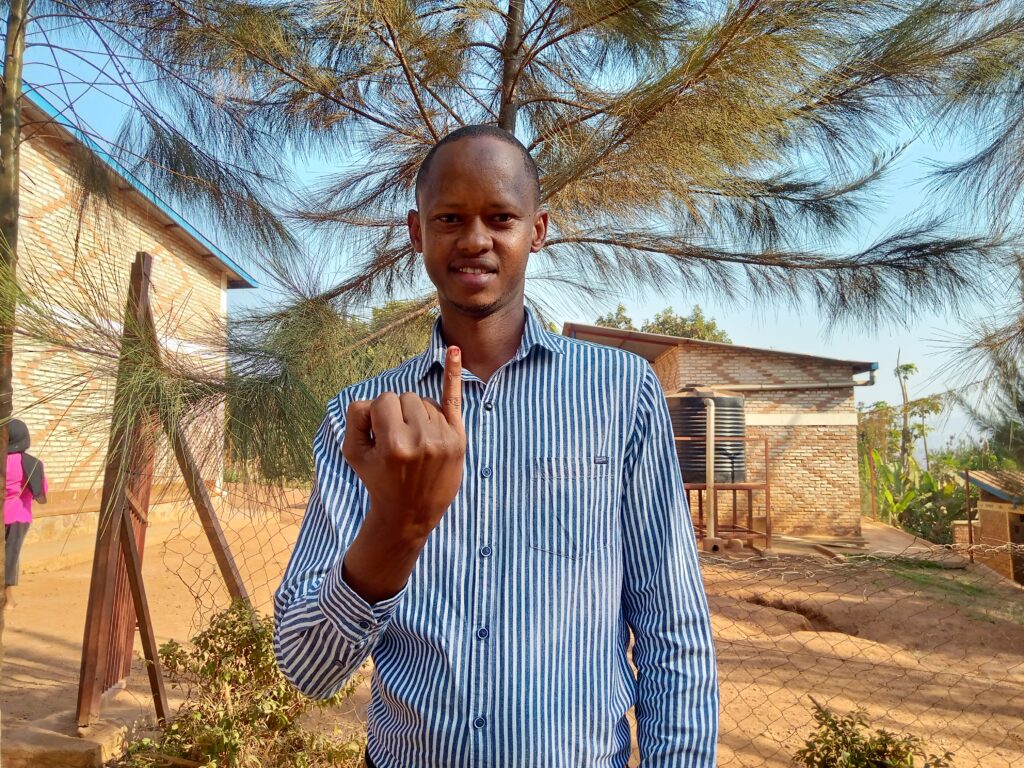
Olive Nakure, a woman with DeafBlindness, also faced significant barriers due to the absence of trained interpreters familiar with tactile sign language. “Reaching the polling station, none knew that I can neither see nor hear or speak as well. I entered and find where to sit while waiting for my personal assistant to come and help me reach a voting room,” she says. “I imagined how I was going to know all related to voting, thinking that they have an interpreter but they did not think of it. For sure, it is something to be sad about, and I wish next time, they will bring a tactile interpreter or plan any other way we may vote. If electronic voting machines had been used, It would have been more helpful to us.”
Physical accessibility remains a challenge for wheelchair users and persons with short stature. Marie Aime Dukuzem, a wheelchair user, struggled with the voting booth’s small doors, while David Gacamumakuba, a person of short stature, found the standard height of voting booths difficult to use. “From the main gate to the voting room, everything has been fine. They welcome you with happiness, asking your village to show your voting room without making you line up as a person with disability,” says Dukuzem. “[However], I did not get a chance to enter the voting booth due to using a wheelchair, which [forced] me to vote out of the booth, and [that violates] personal privacy. As a wheelchair user, I am happy that I have at least voted by myself, and I am sure that my voice is valuable and it is my responsibility as a Rwandan to participate in the appointment of leaders who will lead us.”
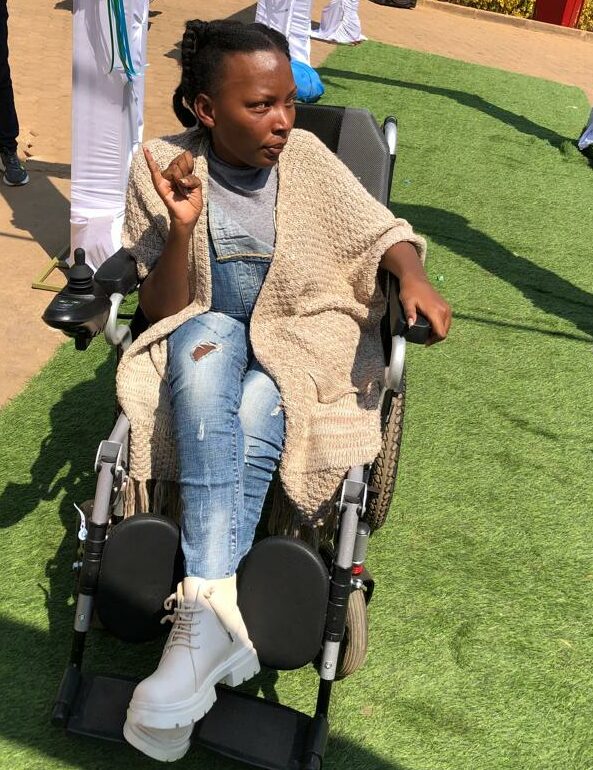
Gacamumakuba voted for the second time in his life on July 15. He says physical inaccessibility, like the lack of adjustable-height voting booths, continues to be a barrier for persons with short stature. However, compared to previous years, this election was improved. For instance, polling staff managed to remove stairs wherever possible. “I am pleased to find myself to the voting list and to vote for my choice. This is a positive experience that generates feelings of empowerment, knowing that my voice matters and that I have contributed to shaping the future of my community and country as well,” he says. “I really hope that I made a good choice, that my vote will help all persons with disabilities to reach their full accessibility. Overall, we shall once vote accessibly, though it may not be today, but there is hope for continued progress.”
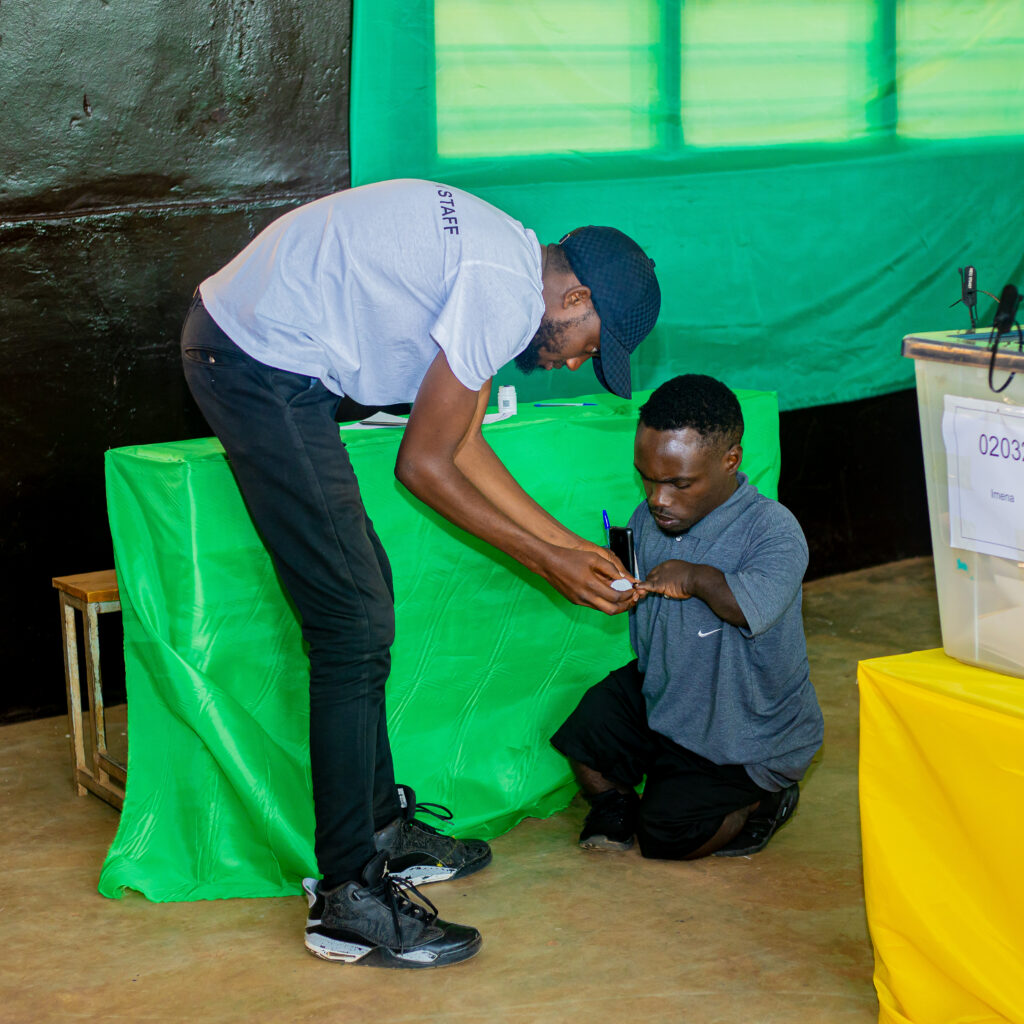
“Voting is a fundamental right, and being able to exercise it without encountering barriers is incredibly affirming,” adds Emmanuel Ndayisaba, executive secretary of the National Council of Persons with Disabilities (NCPD Rwanda). While acknowledging the significant improvements in recent elections, he recognizes the need for more sign language and tactile interpreters. He says he will continue to advocate for more accessible elections in the future through the Disability Management Information System (DMIS) being developed by NCPD.
While there is still work to be done, the recent elections in Rwanda represent a significant step toward greater accessibility and inclusion for persons with disabilities. These improvements are a testament to the ongoing efforts to ensure that every Rwandan can participate fully in the democratic process.
Francine Uwayisaba is a contributing writer with the Disability Justice Project and a field officer at Rwanda Union of Little People (RULP). At RULP, she is in charge of the organization’s communications. She writes grants, manages RULP’s social media, and composes articles and weekly updates for the website. @2024 DJP. All rights reserved.
Editing assistance by Jody Santos
News From the Global Frontlines of Disability Justice
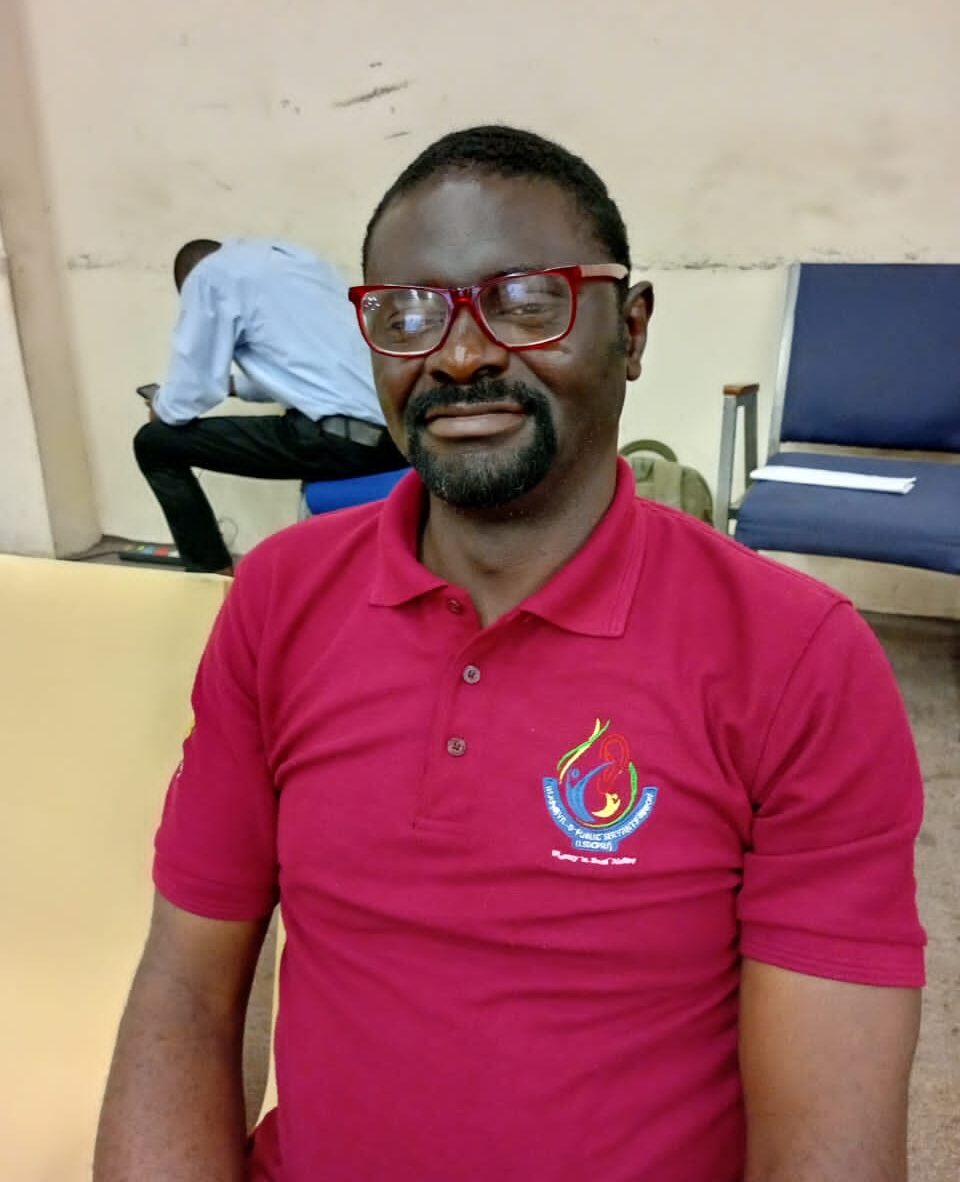
From Isolation to Advocacy
Nigeria’s DeafBlind community has long lacked recognition, but the launch of the Deaf-Blind Inclusive and Advocacy Network marks a turning point. Led by activist Solomon Okelola, the group seeks to address communication barriers and a lack of support. Among those affected is John Shodiya, who once thrived in the Deaf community but struggled with belonging after losing his sight.
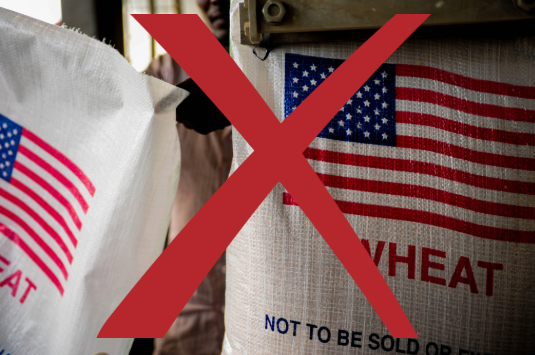
Disability Aid Disrupted
The Trump administration’s 90-day pause on USAID funding has had far-reaching consequences, particularly for disabled people and organizations worldwide, including members of the Disability Justice Project (DJP) community. Activists from Nigeria, the Democratic Republic of Congo, and Rwanda report severe disruptions, deepening challenges for marginalized communities, especially disabled people facing conflict, poverty, and structural discrimination.
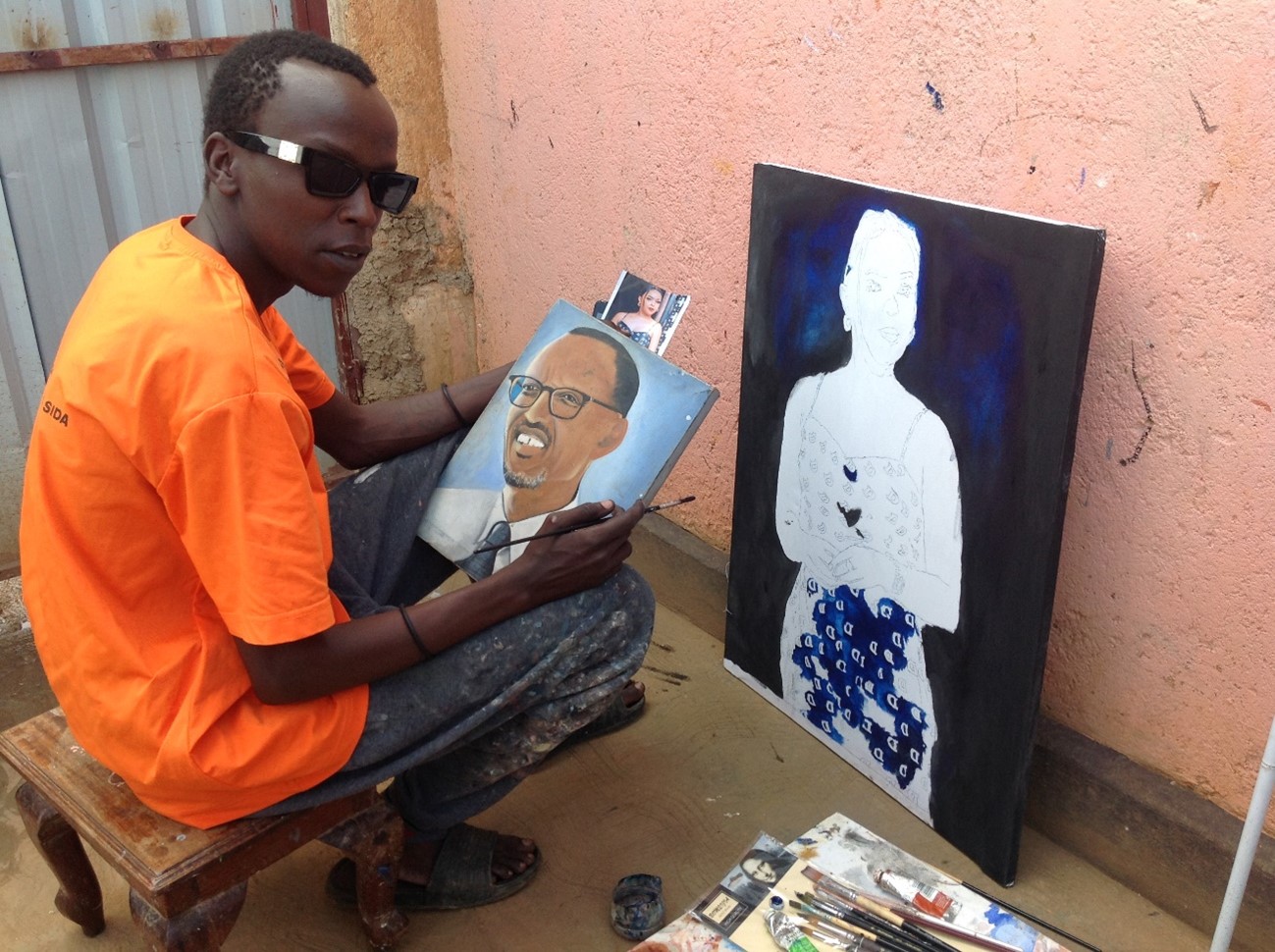
A Life’s Work
After losing his sight, artist Jean de Dieu Uwikunda found new ways to create, using a flashlight at night to outline objects and distinguishing colors by their scents. His story, along with that of DeafBlind sports coach Jean Marie Furaha, is rare in Rwanda. While over 446,000 Rwandans have disabilities, a 2019 study found that only 52 percent of working-age disabled adults were employed, compared to 71 percent of their non-disabled counterparts.
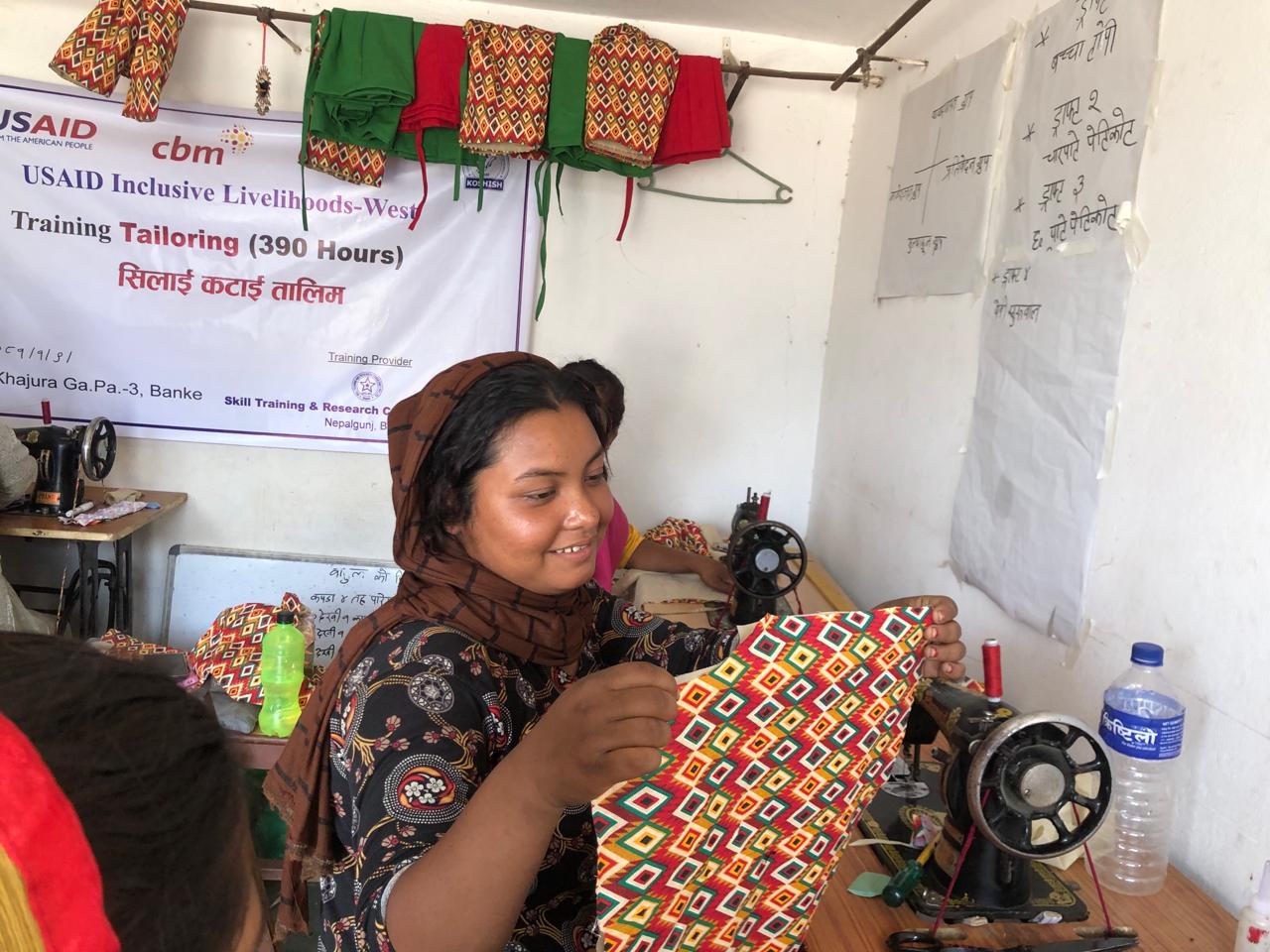
‘I Won’t Give Up My Rights Anymore’
After a life-altering accident, Lakshmi Lohar struggled with fear and stigma in her rural Nepalese community. In 2023, she found a lifeline through KOSHISH National Mental Health Self-Help Organization, which helped her develop social connections and access vocational training in tailoring. Today, Lakshmi is reclaiming her independence and shaping a future beyond the limitations once placed on her. “I won’t give up my rights anymore,” she says, “just like I learned in the meetings.”

Rwanda’s Marburg Crisis
As Rwanda confronts its first-ever Marburg virus outbreak, people with disabilities face heightened risks — not only from the virus but also from the lack of accessible health information. “Without proper accommodations, such as sign language interpreters, captions, Braille, or visual aids, the Deaf and DeafBlind community may miss crucial information about how to protect themselves, symptoms to watch for, or where to seek help in case of infection,” says Joseph Musabyimana, executive director of the Rwanda Organization of Persons with Deaf Blindness.
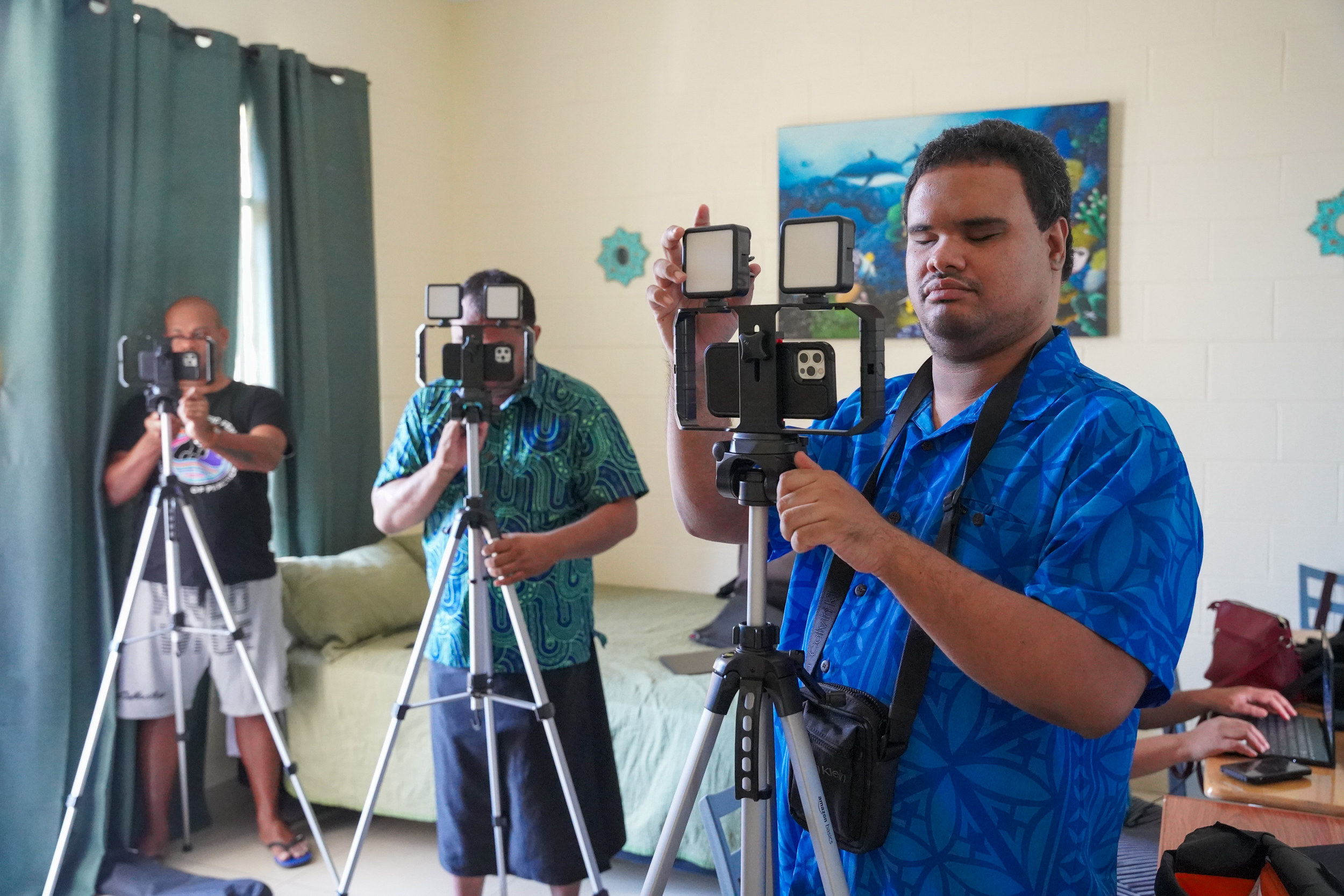
Capturing Vision Through Sound and Touch
Last year, the DJP trained Indigenous activists with disabilities from the Pacific on the iPhone camera to create a documentary series on disability and climate change. With VoiceOver, the iPhone provides image descriptions for blind and low-vision filmmakers and offers other accessible features. “If you think about it, it doesn’t make sense for a blind person to use a camera,” says DJP filmmaker Ari Hazelman. “The iPhone gives you more avenues to tell your story in a more profound way as a blind person.”